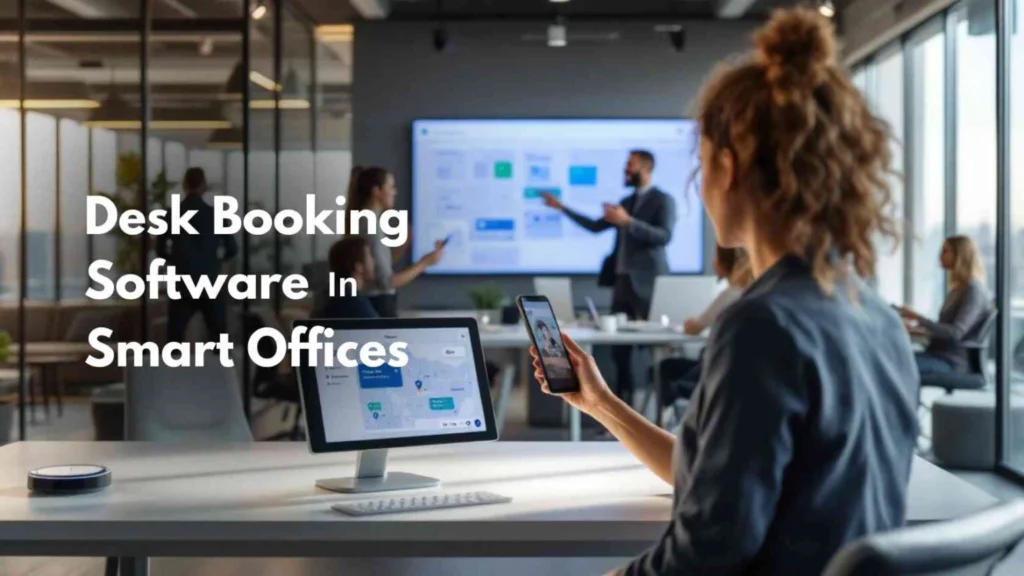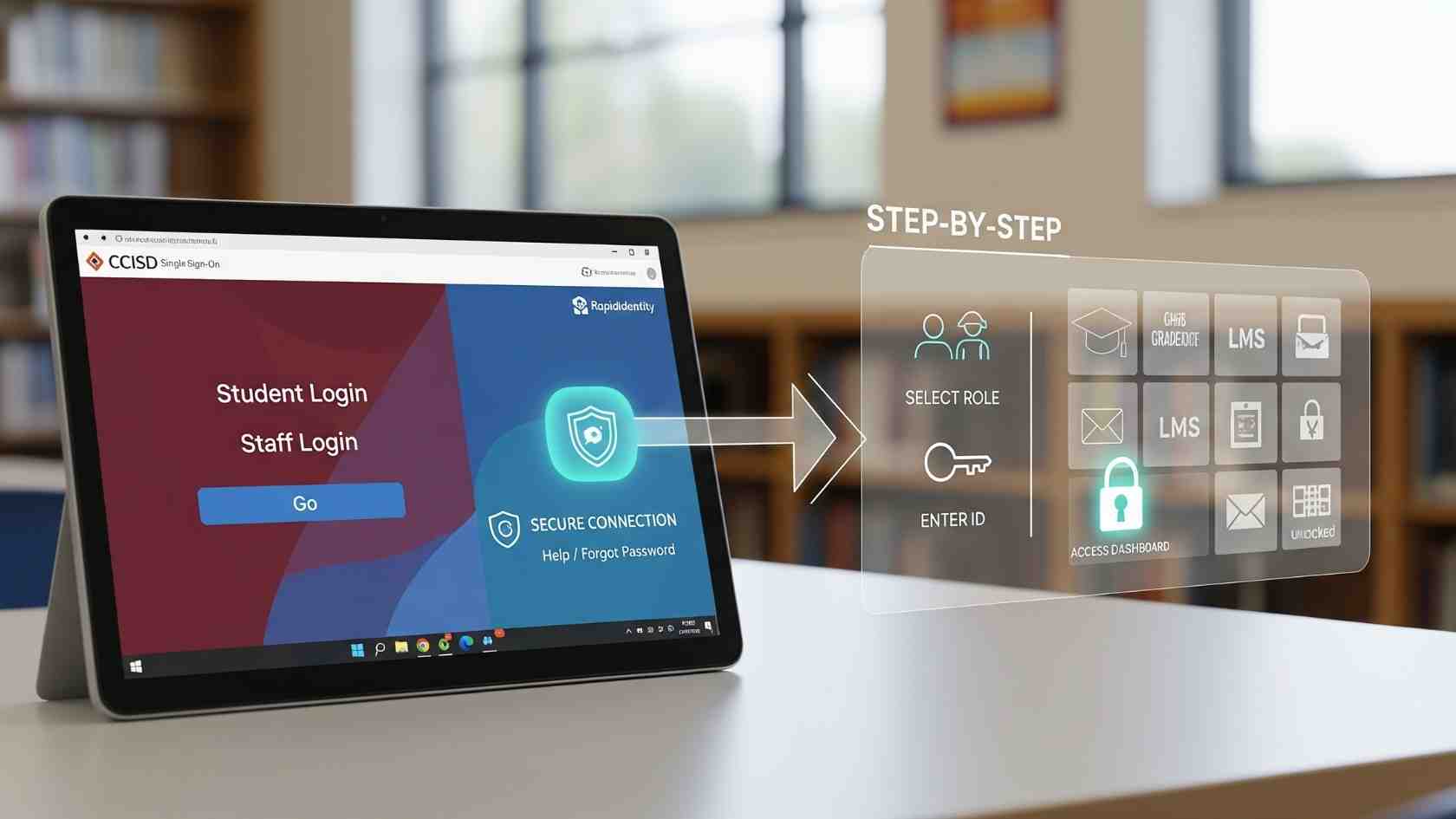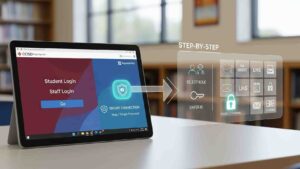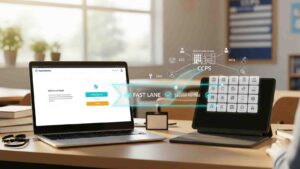The workplace environment has been changing very quickly because new technology combined with hybrid work has become standard. Due to this change, organisations have created smart offices utilising connected devices and real-time data to optimise workplace efficiency, space allocation and user satisfaction. Therefore, organisations require smart office solutions because they need support from flexible work arrangements.
This evolving concept depends on two essential technological elements: IoT integration and desk booking software systems. Occupancy sensors, together with smart lighting and environmental monitors, act as IoT devices which provide organisations with essential usage data about their office spaces. The interface between desk booking systems and employee requirements is made possible through systems that let staff reserve workplace areas based on space availability. Implementation of the right desk reservation tool for your business system creates ease for workspace management, which consequently increases resource efficiency and matches new updated work behaviours.
Smart Offices: What Makes Them Truly Smart?
Modern workspaces with connected technology form the basis of a smart office, which enhances efficiency and provides comfort and productivity improvements throughout the environment. Smart office technology heavily depends on IoT (Internet of Things) devices that include occupancy sensors together with smart thermostats and lighting systems. IoT devices record and distribute up-to-date information, which enables instant reaction changes based on how people use spaces and their behaviour towards work. The intelligent responses of this workspace ensure its capability to adapt to users’ requirements.

The main element that distinguishes smart offices from office automation systems is the integration of everything. A smart office links together systems of office automation with desk booking platforms, climate control, and access management through a single digital network infrastructure. Fully integrated systems enable data to move effortlessly between different tools, so they form an adaptable environment instead of separate technical components. A smart office creates an environment which recognises employee requirements through interconnected systems while dramatically reducing energy consumption and maximising space utilisation to build an employee-friendly workplace of tomorrow.
The Role of IoT in Smart Workspaces
The Internet of Things (IoT) in workplaces consists of linked devices which obtain real-time data for continuous data exchange to maximise operational performance. Occupancy sensors, together with environmental monitoring devices and connected lighting systems in smart workspaces, conduct automated adjustments which optimise operational efficiency while promoting comfort. Smart sensors gather real-time usage data about movement and utilisation patterns and environmental parameters like humidity and air quality, and temperature for space usage analysis.
The detection of empty meeting spaces by occupancy sensors leads to automatic light and climate control shut-off for energy preservation. Air quality sensors assess CO₂ levels causing ventilation systems to activate automatic control for maintaining proper air quality in buildings. The number of occupants in each room determines adjustable temperature parameters to maintain comfort without human control.
Desk Booking Software: A Cornerstone of Flexibility
Modern flexible offices require desk booking software to enable workers reservation of workspace areas at any time. Workers can choose their workspace locations based on current needs through real-time availability systems presented on these platforms. Workspace reservation capabilities within desk booking systems provide agility to the workplace, and they optimally use office space.

Organisations operating under hybrid work structures between home and office require critical workspace solutions which adapt to changing employee needs. The accessibility offered by desk booking software allows organisations to determine their physical space needs based on genuine employee presence. Employees receive along with facilities managers the necessary planning tools through mobile access and calendar integrations, and analytics dashboards.
Hot desking represents a well-known application of this technology through which people select any vacant desk instead of getting a permanent desk assignment. By using this approach, organisations achieve efficiency through reduced wasted space while enabling employees to freely collaborate throughout the space.
Benefits for Companies and Employees
The integration of smart offices benefits both organisations and their team members with concrete advantages. Organisations implement IoT devices together with desk booking systems when creating workplaces that deliver comfort and efficiency, along with employee well-being through connected technology. Real-time management of lighting and temperature alongside air quality control creates customised healthy areas of work that enhance employee experiences and workplace performance. Optimal workplace environmental optimisation results in better task performance by 10% while sick leave rates decrease by 25%.

A smart office system implements operational measures which lead to substantial cost reductions. The combination of automated energy tracking feedback with space occupancy tracking features and facility management automation yields overhauled operational expenses. Companies adopting flexible seating and a real-time occupancy tracking system typically reduce their real estate expenses by 30%. To manage hybrid work models effectively while remaining unencumbered by unnecessary equipment, the key piece of technology is desk booking software that reduces empty spaces.
The data derived from smart office tools aids strategic decision-making because of their gathered insights. Ceasing spatial data collection provides facilities teams with better usage insights through which they can make knowledgeable decisions to enhance productivity and environmental sustainability. The collected data assists both short-term planning through workplace optimisation and long-term strategic design processes for future workplaces that match employee needs and organisational objectives. Every party benefits from the outcome of this dynamic workplace approach, which promotes an agile environment focused on people’s needs.
Also Read: What Is CMMS Software? A Guide for Maintenance Teams
Organisations today need to adopt the smart workplace future because it delivers both operational efficiency and employee satisfaction with additional flexibility. A practical transformation base can be established by integrating desk booking solutions with IoT technology implementations. These tools enable business organisations to handle hybrid work styles and minimise operational waste while building working environments that deliver both support and productivity benefits to their people.
The initial deployment of a desk booking system represents an accessible yet powerful change that benefits organisations. A desk booking system enhances space utilisation through smart planning and provides flexible scheduling capabilities and data-driven insights about office employee activities. Smart technological adoption in present times will enable companies to lead future industry changes as they prepare with strong adaptability and assurance to deliver the needs of the rising team.










